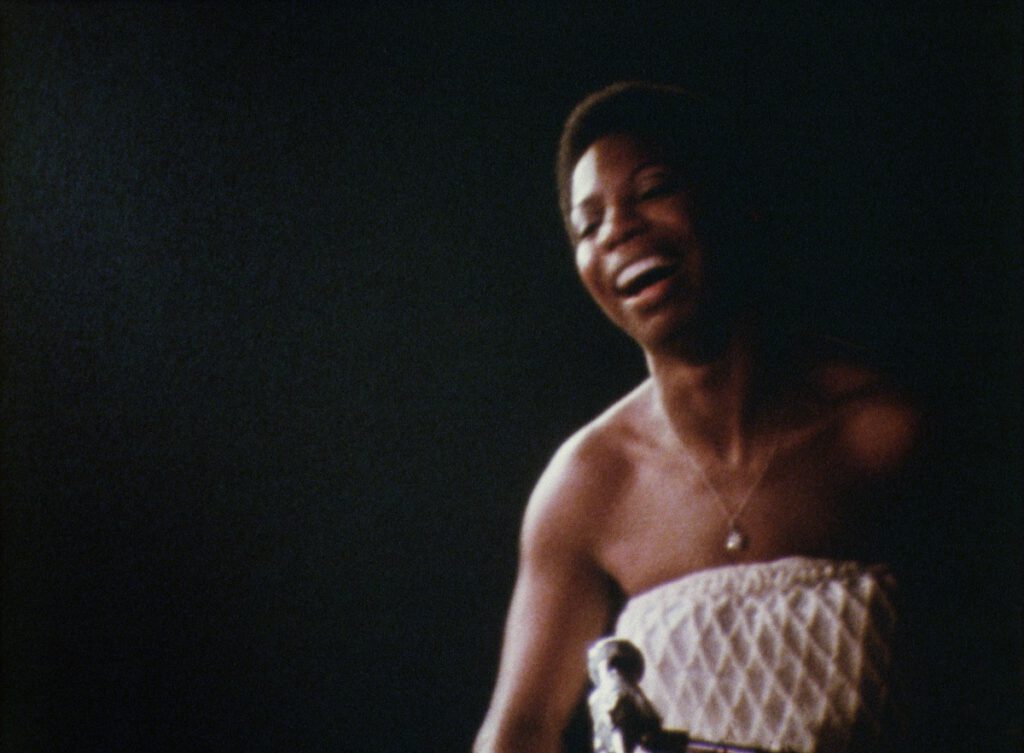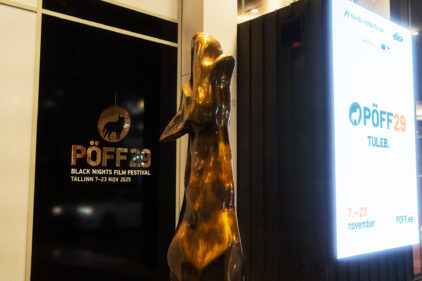In a fashion reminiscent of
the crowd-pleasing “Whiplash,” this year’s Sundance Film Festival kicked off with
another film about a musical genius pushed to their limits in “What Happened, Miss Simone?” And throughout
its 102 minute running time, this slight documentary makes a valiant, if ultimately
ineffective effort to discover what did happen to the enigma that was jazz
provocateur Nina Simone.
Directed by Academy-Award
nominee Liz Garbus, the movie is a Netflix-produced venture, soon to be released
on their platform. It’s a fitting acquisition too, as Garbus’ film—which
intersperses sporadic talking head interviews with Simone’s family and friends—comes
across as a cursory glance at the legend’s sordid life.
There’s palpable pain brewing
inside of Simone’s mangled, mercurial figure. That pain is especially
perceptible in the margins of her telling diary, which serves as the film’s
de-facto narrator. And, even in her baritone voice, there’s a tinge of
melancholy and heartbreak that hint at a life replete with domestic abuse, rabid
racism and severe depression. But that struggle is rarely felt in Garbus’ film,
only explained. Instead, she leans too heavily on concert performances, which
are wonderful to sit and listen to, but will dull those who are not ardent
listeners of Simone’s virtuoso discography. Unfortunately, that puts “What
Happened, Miss Simone?” in a precarious position: it’s not insightful enough to
satisfy preexisting fans of her music, and not engaging enough to attract new
ones.

However, what followed made
me long for Simone and her alluring imperfection. Any buzz potentially circulating
around “The Bronze” quickly vanished
upon the first 20 minutes of its P&I screening. Nauseating from start to
finish, the film opens in the quaint town of Amherst, Ohio, with Hope Annabelle
Gregory (Melissa Rauch), a ribald, washed-up Olympic gymnast desperately clinging
onto a bronze medal she won nearly a decade ago. When not masturbating to a
tape of her orgasmic Olympian moment, Hope is crushing (then snorting) pills of
“Clarifed” like a Wall Street degenerate inhaling lines of cocaine.
Upon the death of her former
coach—who also assumed the role of her absent mother—she is tasked with
training a burgeoning gymnast, the innocent Maggie Townsend played by Haley Lu
Richardson. The simplistic setup propels Gregory out of her bed and into
action, initially sabotaging Townsend’s chances of winning by feeding her junk
food, getting her stoned, and introducing a beau into her life (Maggie has
never been kissed).
Surely, there’s potential in “The
Bronze,” but it’s a thoroughly one-note affair. Hope spews expletives
incessantly because crafting an actual thought would require far too much
energy. The joke, I believe, is that she has gall to be profane anywhere,
anytime. And there are a few occasions in which Hope’s raunchiness elicits a
chuckle. An acrobatic sex scene involving Hope and a fellow Olympic gymnast
(the antagonist in the film, played by Sebastian Stan) is gold—the rare clever moment
in this bundle of misfires. It’s clear that director Bryan Buckley is aiming
for go-for-broke vulgarity in the way “Bad Words” flourished. The vital
difference between the two films is that Jason Bateman is a national treasure, with
the ability to deliver pointed ad hominems with sardonic precision. Rauch, whom
I suspect to have a career after this mishap, bangs her drum to one, unfunny beat
again and again and again—each time to the deafening sound of crickets.

Playing in the Spotlight
section (the category where Sundance selects movies from other festivals they
want to showcase) is “White God,” a
peculiar and plodding yarn from writer/director Kornél Mundruczó. Essentially
the Hungarian “Bicycle Thieves,” the movie revolves around a teenage girl
traversing the streets in search of her beloved mixed-breed, Hagen. Sporting a
turquoise hoodie and a backpack with her trumpet always in tow, Lili (Zsófia
Psotta) rides her bike around the city for hours. She is tireless in her
pursuit to track down her dog. And no one, especially her estranged father whom
she’s staying with for three months, seems to understand why she cares so much.
Is the mutt Lili’s way of
combating loneliness? Is Hagen the only living, breathing thing she truly
loves? Are the derogative comments hurled at Hagen symbolic of the classicism
in Hungary? Does any of this matter?
“White God” fields all these
questions in one way or another by its end. But what’s clear is that Mundruczó
is fascinated in the buildup, the slow burn before the fireworks. And really,
the only riveting elements here come from the fireworks courtesy of a brutally
violent left turn delivered in the film’s final half hour. As it rapidly morphs
into “Dog of the Planet of the Apes,” it’s clear that we’ve been watching the
wrong film for the last 90 minutes.

Though to less detriment, “Stockholm, PA” similarly struggles
with this multiple personality disorder. Nikole Beckwith’s directorial debut picks
up with Leia Dargon (Saorise Ronan), a taciturn 20-something returned to her
biological parents after 17 years of being held captive. It doesn’t particularly
feel like home for Leia, whose mind has been molded by her abductor (Jason
Isaacs) for nearly two decades.
Beckwith immediately dives
into the idea that a victim of kidnapping could have more affection for their
abductor than the people who birthed them into existence. To Leia, there was no
crime committed. Life as she knows it just happened. Ronan plays the aloof Leia
to a tee—her emotional and psychological confusion kept at bay as parents,
psychologists and strangers press her for details about what happened. Most
sequences allow Ronan to say nothing at all, to operate in complete silence.
Underneath the confident veneer that doesn’t believe in religion because “religion is for those who don’t believe in
themselves,” is a scared, perplexed woman. Or maybe not.
“Stockholm, PA” dexterously
plays with our expectations about how Leia should feel. From afar we see a
child tragically taken away from her family and thrown into this insular life
of living in a basement with a stranger. But Beckwith adds grey layers to that
narrative that make it difficult to say what is right and what is wrong.
Perhaps being kidnapped by Ben McKay (Isaacs) was the best thing to happen to
Leia—a path of enlightenment her parents (played by Cynthia Nixon and David
Warshofsky) couldn’t offer.
That the movie doesn’t
entirely undo itself as a result of its haphazardly constructed last act is a
testament to Ronan’s abilities. Under Beckwith’s incisive direction, Ronan
delivers an unnerving performance, creating a character we so intensely wish to
fully comprehend, but never will.
Day two ended on a positive
note as I re-watched the “The Royal
Road,” a breathtaking cinematic essay that made its world premiere
yesterday here at the festival. The 66-minute masterpiece is written and directed
by Jenni Olson, famed documentarian, lauded scholar, and brilliant mind out of
San Francisco. To describe her opus is virtually impossible, as it is
simultaneously about everything and nothing. Somehow, someway, Olson has woven
together a personal story shot on 16mm, about unconsummated intimacy,
protracted longing, butch identity, sumptuous California landscapes, the
Mexican-American war, and Vertigo. If that logline doesn’t entice you, I’m not
sure what will.












